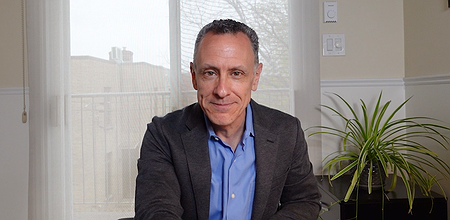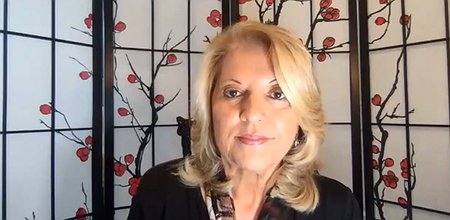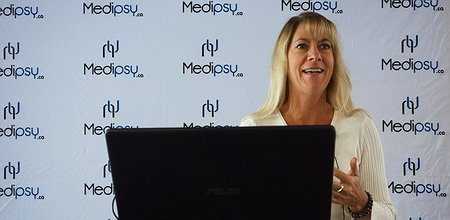- Understand the development of healthy attachment
- Diagnose attachment styles and identify generational attachment patterns
- Identify how trauma impacts attachment and how to restore felt safety
- Recognize attachment dysfunction in personality disorders and apply techniques to teach healthy relationship skills
Repairing Attachment Trauma in Adulthood
Dr. Christina Reese, Clinical Professional Counselor
Master evidence-based strategies to help clients rebuild secure attachments and heal from relational trauma through targeted therapeutic interventions
Excerpt:
- 3h of continuing education
- 20 lessons that last from 5 to 15 minutes each
- 1 certificate of achievement
- 1 PowerPoint
- 1 bibliography
- 1 course evaluation
- 7-day money back guarantee
- Unlimited access
- 97% of participants who completed the satisfaction survey declare they would recommend this course to a colleague
Overview
Attachment trauma fundamentally shapes how clients approach relationships, regulate emotions, and experience intimacy. When left unaddressed, it can significantly impact therapeutic outcomes across various presenting problems.
This advanced clinical training equips you with concrete therapeutic tools to address both developmental and adult-onset attachment trauma. Through detailed case conceptualization and practical interventions, you'll strengthen your ability to:
- Implement targeted strategies for repairing attachment ruptures and rebuilding relational safety
- Apply evidence-based techniques for emotional regulation and secure attachment development
- Integrate attachment-informed approaches when working with personality disorders and complex trauma
- Utilize specific interventions to address generational attachment patterns
Dr. Reese draws from over two decades of clinical experience to demonstrate how these approaches can be effectively integrated into your existing therapeutic framework. You'll examine real clinical cases that illustrate the practical application of attachment theory in adult trauma treatment.
This training bridges theoretical understanding with concrete clinical skills, enabling you to facilitate meaningful change in your clients' attachment patterns and relational capabilities.
Accreditation
Collège des médecins du Québec
For physicians who practice psychotherapy, training recognized by the Ordre des psychologues du Québec is automatically considered as activities adopted by the Collège des médecins, in accordance with Article 3 of the Regulation.
For physicians who do not practice psychotherapy, the College evaluates each recognition request based on the following criteria:
- the relevance of the activity to the practice of the profession
- the skills and experience of the trainer
- the quality of the content and its adequacy with the physician's practice
- the pedagogical framework of the activity
- the quality of the documentation provided
- compliance with the training objectives set out in the regulation
- the presence of a certificate of participation or an evaluation
About the expert

Dr. Christina Reese is a Licensed Clinical Professional Counselor with over 20 years of specialized experience in attachment-based trauma treatment. Licensed in Maryland, Maine, and Pennsylvania, she serves as a clinical supervisor helping therapists develop expertise in complex trauma and attachment disorders.
Dr. Reese earned her Ph.D. in Counselor Education from George Washington University and her Master's degree in Community Counseling from McDaniel College. Her doctoral research, "A Qualitative Study of Gang Desistance in Former Gang Members," explores the intersection of trauma, attachment, and behavioral change.
As a TBRI (Trust-Based Relational Intervention) Practitioner, Dr. Reese integrates cutting-edge attachment science with trauma-informed clinical practice. She has authored six influential books including:
- "Attachment"
- "The Attachment Connection"
- "Trauma and Attachment"
- "The Socially Confident Teen"
- "Leveling Up"
- "Puzzle Pieces"
Dr. Reese's clinical work focuses on providing practical, implementable strategies for repairing attachment disruptions, supporting emotion regulation, and treating attachment-related mental health disorders in children and families. Her approach combines foundational attachment theory (Bowlby, Ainsworth, Harlow) with contemporary neuroscience and evidence-based interventions that clinicians can immediately apply in practice.
Learning objectives
Learning material
A theoretical course illustrated with clinical examples. This course is composed of videos of 5 to 15 minutes each. The PowerPoint of the course to download.
Syllabus
- PowerPoint
- 1. Introduction
-
Understanding Healthy Attachment
- 2. Attunement-Meeting Needs
- 3. Trust Development & Vulnerability
- 4. Healthy Attachment
-
Generational Attachment
- 5. Internal Working Models
- 6. Experiments on Attachment
-
Attachment Styles in Relationships
- 7. Avoidant Attachment Style
- 8. Anxious Attachment Style
- 9. Disorganized Attachment Style
- 10. How Different Attachment Styles React to Each Other
-
How to Repair and Heal
- 11. Ruptures and Repairs
- 12. Childhood Trauma
- 13. Death Trauma
- 14. Divorce or Separation Trauma
- 15. Abuse Trauma
- 16. Personality Disorders
- 17. Emotion Regulation
-
Attachment and Mental Health Disorders
- 18. Depression and Anxiety
- 19. Bipolar, Schizophrenia, ADHD
- 20. Conclusion
- Bibliography
CE Credits
Download a certificate of successful completion.
Audience
This course is intended for mental health professionals.
Your comments
"Really appreciated the practical suggestions for using attachment theory with clients. Courses are often very informative about the topic but not practical implications. This course gave me some tangible tools to use with clients through an attachment lens." (automatically translated)
A psychologist
Registration
Ask a question
Do you have a question? Then email us at contact@asadis.net
Frequently asked questions
-
Is there an evaluation at the end of the course?
To validate the achievement of the learning objectives, a final evaluation in the form of true/false questions is required. It must be completed in order to obtain the certificate of completion.
In addition, an optional self-assessment is offered at the beginning and end of the course, allowing you to measure your progress on the targeted skills.
These evaluations are not graded and are intended primarily to support your professional reflection.
-
I have a disability. Can I receive specific support?
Yes! This training is offered as a pre-recorded video format, without subtitles. If you have a disability, we can provide an adapted alternative (technical assistance for viewing or individual supervision). For any request, please contact our disability coordinator at the following address: contact@asadis.net
-
How long do I have access to the course?
After your registration, the course is accessible anytime and from anywhere with unlimited access.
-
When does the course start?
That is entirely up to you! When you buy a course, you'll receive an access link that you can activate when you want.
-
Is there a student rate?
Yes there is! To learn more, email us at contact@asadis.net.
You may also be interested in:
Legal notice
The courses offered by ASADIS are accredited by different professional organisations. In addition, ASADIS is approved by the Canadian Psychological Association to offer continuing education for psychologists. ASADIS maintains responsibility for the program.
The CPA’s approval of an individual, group, or organization as a CE Sponsor or Provider is restricted to the activities described in the approved application or annual report form. The CPA’s approval does not extend to any other CE activity the Sponsor or Provider might offer. In granting its approval, the CPA assumes no legal or financial obligations to Sponsors, Providers, or to those individuals who might participate in a Sponsor or Provider’s CE activities or programs. Further, responsibility for the content, provision, and delivery of any CE activity approved by the CPA remains that of the CE Sponsor or Provider. The CPA disclaims all legal liability associated with the content, provision, and delivery of the approved CE activity.






